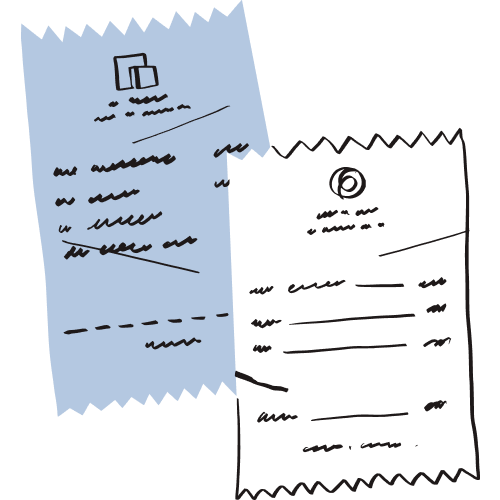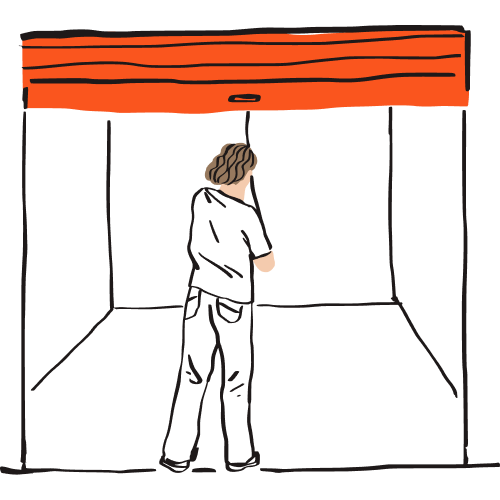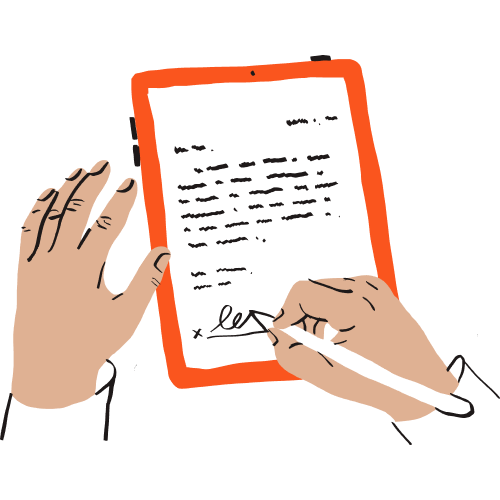Formswift: Streamline loan agreements with a promissory note template
Save time and ensure accuracy with a promissory note template. Our user-friendly template helps you create a legal document for loan agreements, while providing peace of mind and clarity for both parties involved.


What does a promissory note include?
A comprehensive promissory note typically includes:
- Names and contact information of the parties involved
- Loan amount
- Repayment terms
- Interest rate (if applicable)
- Consequences of default (in case payments are missed)
- Governing law
- Signatures of the borrower and lender

Why use a promissory note?
A promissory note is a promise from the borrower to repay the lender in full by the due date, based on the repayment plan. That can include any unpaid principal sum, accrued interest, and late payment fees.
It protects the rights of both parties, and can be referred back to if there's ever a dispute.

When to use a promissory note
A promissory note should be used whenever money is borrowed or loaned between individuals or entities.
It’s commonly used for personal loans, business transactions, student loans, real estate financing, and any situation where a formal loan agreement is required.

Types of promissory notes
The type of promissory note you need depends on the specific lending scenario:
- Secured promissory notes (backed by collateral)
- Unsecured promissory notes (without collateral)
- Demand promissory notes (repayable on demand)
- Installment payment promissory notes (repayment in scheduled installments)

What do I need to write a promissory note?
Writing a promissory note is simple when you have the right promissory note template and the right information to hand. But what exactly do you need to write a promissory note?
Include their full legal names, addresses, and contact numbers—include any co-signers if applicable.

The terms of this note should specify the amount borrowed, repayment terms (including interest rate, if applicable), and the due date or schedule of payments.

If the loan is secured by collateral, describe the collateral and its value.

Clearly outline the actions that will be taken in case of default, such as late fees, penalties, or legal recourse.

Indicate the jurisdiction or state laws that will govern the promissory note.

Both the borrower and lender should sign and date the promissory note to acknowledge their agreement to the terms.

Frequently asked questions
Yes, an executed promissory note is a legal document that establishes a contractual relationship between the borrower and lender. The promissory note outlines the terms and conditions of the loan.
The promissory note cannot be discharged or altered unless both parties agree to sign a waiver.
If you don’t want to change a promissory note, the lender and borrower both need to be involved, with the changes documented in writing. It's essential to follow proper legal procedures when making changes to the original agreement.
In the event of default (for example, the borrower missing a payment), the lender can make amendments to the promissory note.
This could include taking legal action, seeking repayment through collateral (if applicable), or reporting the default to credit agencies. You could also, for example, add a clause that a lump sum payment can be made to clear the debt to avoid these kinds of actions.
The requirement for witnesses or notarization depends on the state and the specific terms of the promissory note. We advise consulting local regulations or a law firm to ensure compliance with applicable laws.
Create a Promissory Note by State
Disclaimer: This information is intended for general informational purposes only. It is meant to help you understand the legal framework used for this form. This is not intended to be legal advice and should not be a substitute for professional legal advice. Consult a licensed attorney for legal advice or representation.
Explore more helpful forms and templates
Formswift is not a law firm and does not provide legal advice or representation. Formswift's documents are not a substitute for the advice of an attorney. Communications between you and Formswift are governed by the Formswift Privacy Policy but are not protected by the attorney-client privilege or as work product. Formswift does not provide advice, opinions, or recommendations about individual's legal rights, options, strategies, or the selection of forms. Your use of the Formswift website and forms is governed by the Formswift Terms of Service.